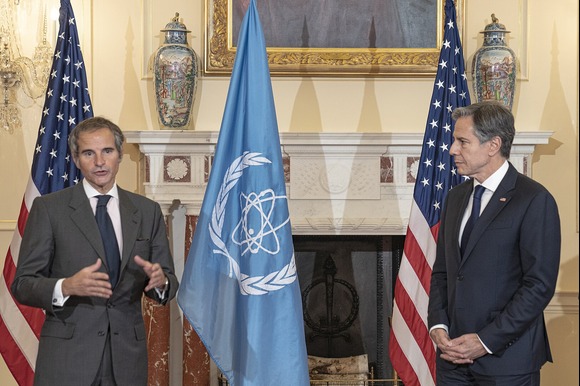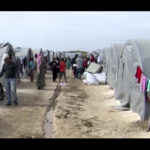Talks on restarting International Atomic Energy Agency (IAEA) inspections of Iran’s nuclear facilities have shown progress, but the agency’s director general has cautioned that “not much” time remains to reach an agreement.
On Monday, Rafael Grossi, head of the United Nations nuclear watchdog, briefed the 35-nation IAEA Board of Governors in Vienna, Austria, stating: “Progress has been made. It is my sincere hope that within the next few days it will be possible to come to a successful conclusion of these discussions. There is still time, but not much.” Grossi did not provide specific details regarding the timeframe.
Although Tehran allowed IAEA inspectors into the country at the end of August, Iran’s Ministry of Foreign Affairs confirmed that no agreement had yet been reached on resuming full cooperation with the agency.
Tensions escalated following a 12-day conflict in June, which saw Israeli and U.S. strikes on cities across Iran, including the Fordo, Natanz, and Isfahan nuclear sites. Iran subsequently altered its cooperation with the IAEA after expressing anger at the agency for what it perceived as facilitating Israel’s attacks. The watchdog had released a report in May declaring Iran in breach of the Treaty on the Non-Proliferation of Nuclear Weapons (NPT), one day before Israel conducted airstrikes.
Tehran’s frustration intensified when the IAEA did not publicly condemn Israeli or U.S. attacks. In response, the Iranian parliament passed legislation in July suspending cooperation with the agency. Under the new law, any future inspections of Iran’s nuclear sites require approval from the Supreme National Security Council.
Last week, Grossi told Reuters that the IAEA board was actively pursuing a deal to allow inspections of Iranian sites, including those struck by Israel and the U.S. He confirmed that the agency has no concrete information regarding the location or status of Iran’s stock of highly enriched uranium since the attacks on June 13.
“I believe there is a general understanding that, by and large, the material is still there. But, of course, it needs to be verified. Some could have been lost,” Grossi said. He added, “We don’t have indications that would lead us to believe that there has been major movement of material.”
Late last month, France, Germany, and the United Kingdom triggered a mechanism to reimpose sanctions on Iran after talks failed to reach an agreement on its nuclear programme. The three European nations, known collectively as the E3, had warned Tehran for weeks that UN sanctions could be reinstated by October, coinciding with the expiration of a 2015 nuclear deal between Iran and major world powers.
The situation underscores the delicate balance between diplomacy and enforcement as the international community seeks to prevent Iran from advancing its nuclear programme unchecked while maintaining the possibility of inspections under the IAEA framework.






